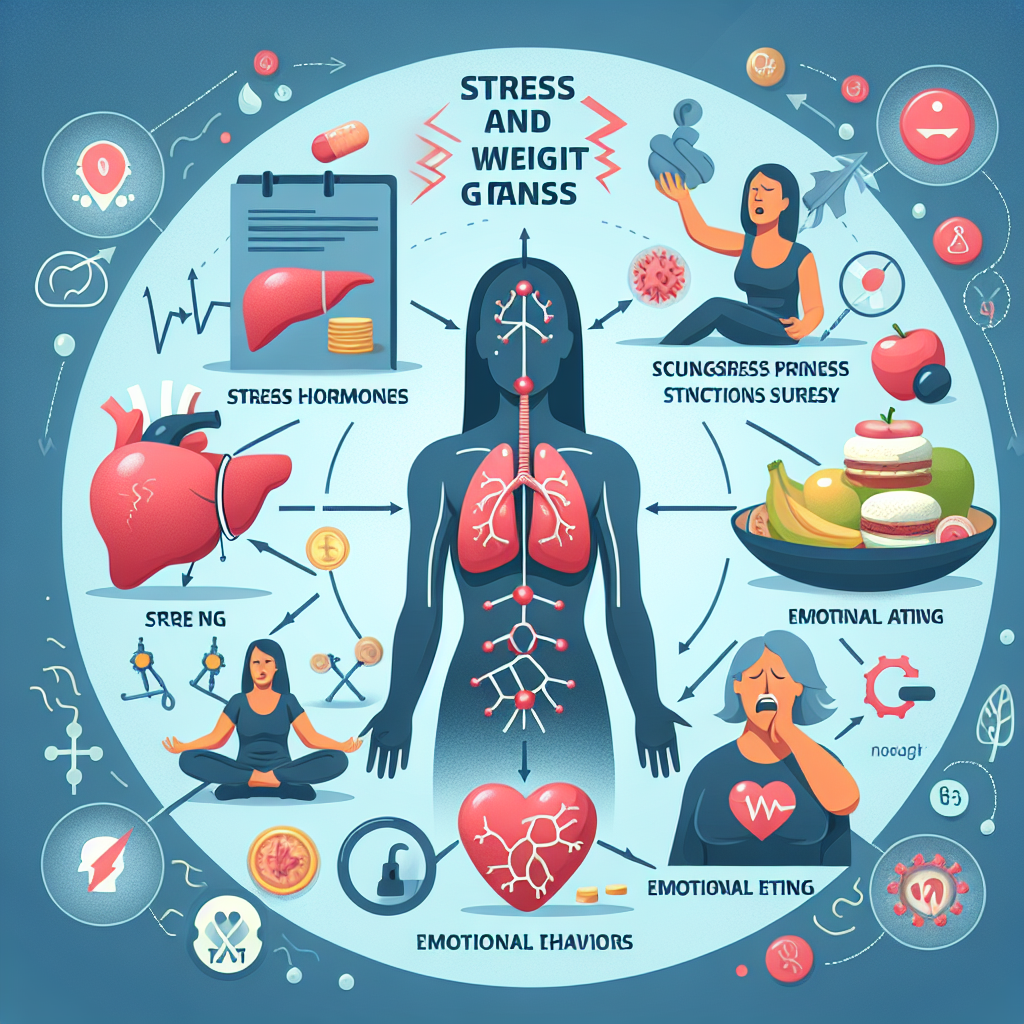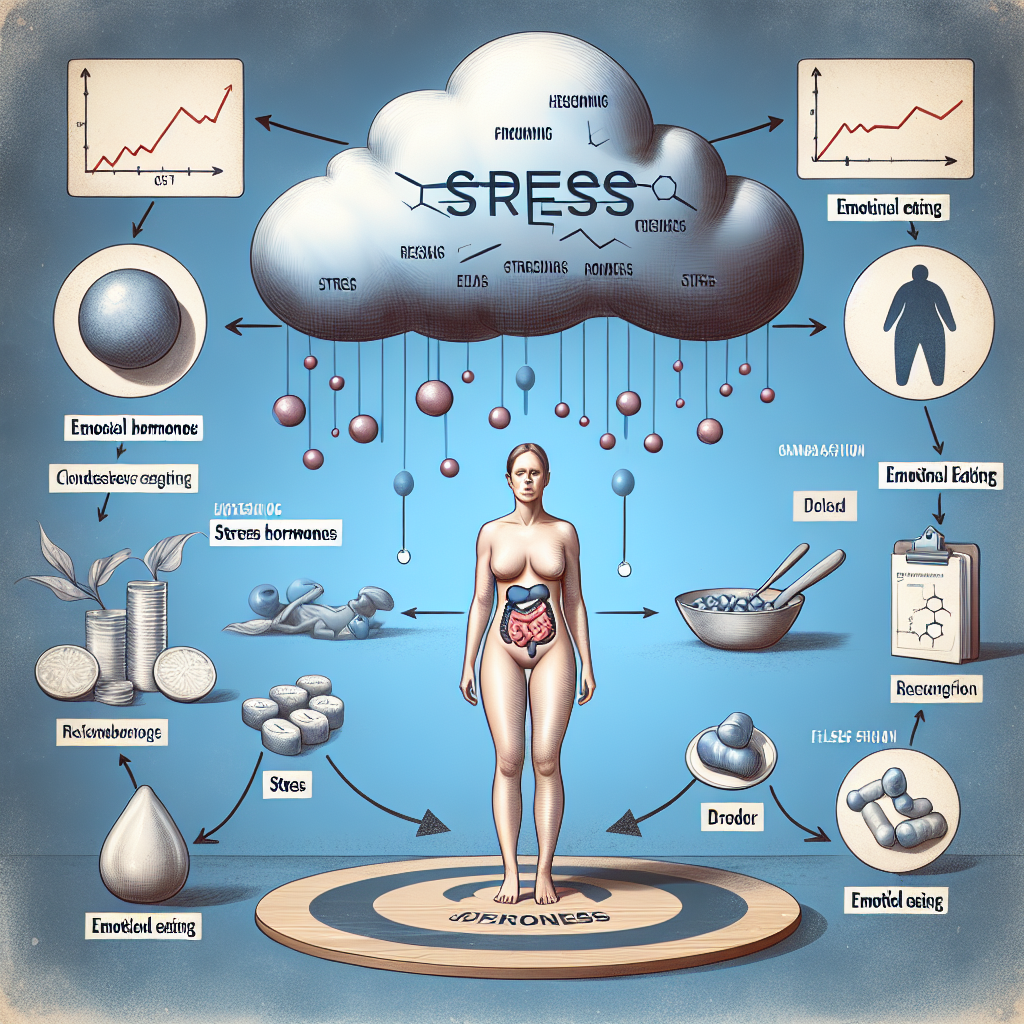How Does Stress Make You Gain – Stress Related Weight Gain
Are you curious about how stress can impact your weight? Well, in our article “How Does Stress Make You Gain,” we will explore the connection between stress and weight gain. We will shed light on how stress affects your hormones and triggers unhealthy cravings, leading to potential weight gain. Join us as we dive into the fascinating science behind this phenomenon and discover ways to combat stress-related weight gain.
How Does Stress Make You Gain


Understanding Stress and Weight Gain
Stress is an inevitable part of life. Whether it’s from work, relationships, or other life challenges, everyone experiences stress at some point. But did you know that stress can actually contribute to weight gain? Understanding the connection between stress and weight gain is crucial for maintaining a healthy lifestyle. In this article, we will explore the various mechanisms through which stress can lead to weight gain and provide practical tips on how to manage stress effectively.
Stress Hormones and Appetite
When you experience stress, your body releases stress hormones such as cortisol and adrenaline. These hormones play a vital role in the body’s fight-or-flight response, helping you to cope with immediate threats. However, chronic stress can lead to an overproduction of these hormones, which can disrupt your body’s natural balance and affect your appetite.
Cortisol and Stress-Induced Weight Gain
Cortisol, often referred to as the “stress hormone,” plays a significant role in stress-induced weight gain. High levels of cortisol in the body can increase your appetite, particularly for high-calorie, sugary, and fatty foods. Moreover, cortisol promotes the storage of fat, particularly around the abdominal area. This creates a vicious cycle, as increased body fat can further contribute to stress and weight gain.
Impact of Stress on Food Choices
Stress can also influence your food choices. When you’re stressed, you may turn to comfort foods that are high in calories, fat, and sugar. These foods provide temporary relief from stress by triggering the release of feel-good chemicals in the brain. However, the long-term consumption of unhealthy, stress-induced food choices can lead to weight gain and other health issues.


Emotional Eating and Stress
Emotional eating is another aspect of stress-induced weight gain. Many people turn to food as a coping mechanism when they are stressed or overwhelmed. Instead of addressing the underlying issues causing stress, individuals may find temporary comfort in eating. Stress can disrupt our ability to regulate our emotions and make it harder to resist the urge to eat unhealthy foods when feeling stressed.
Stress and Cravings
Have you ever noticed that you crave specific foods when you’re stressed? Stress can trigger intense cravings, especially for foods that are high in sugar and fat. This is because stress activates the brain’s reward center, leading to a heightened desire for these types of foods. Unfortunately, giving in to these cravings can lead to overeating and weight gain over time.
Stress-Induced Lack of Physical Activity
Stress can also interfere with your regular exercise routine. When you’re feeling overwhelmed or drained by stress, finding the motivation and energy to engage in physical activity can be challenging. This lack of physical activity can contribute to weight gain by slowing down your metabolism and reducing calorie expenditure. It’s essential to find ways to incorporate exercise into your routine, even during stressful periods, to maintain a healthy weight.
Sleep Disruptions and Weight Gain
Stress can negatively impact your sleep patterns, leading to sleep disruptions or insomnia. Poor quality sleep has been linked to weight gain and obesity. When you’re tired, your body produces more ghrelin, the hormone that stimulates appetite, while suppressing leptin, the hormone that signals fullness. This hormone imbalance can result in increased hunger and overeating, leading to weight gain.
Increased Fat Storage due to Stress
Another way that stress can contribute to weight gain is through increased fat storage. During stressful periods, your body is more likely to store fat, particularly around your midsection. Research has shown that chronic stress can lead to higher levels of abdominal fat, which is associated with a higher risk of developing various health conditions such as heart disease and diabetes.
Stress and Gut Health
The connection between stress and gut health is gaining recognition in scientific research. Chronic stress can disrupt the balance of bacteria in your gut, leading to digestive issues and inflammation. Additionally, stress can affect the functioning of the gut-brain axis, which controls appetite and feelings of fullness. Imbalances in the gut can contribute to weight gain and other health problems.
Conclusion
Stress can have a significant impact on weight gain through various mechanisms. From the influence of stress hormones on appetite and fat storage to the disruption of sleep patterns and gut health, stress can contribute to unhealthy weight gain. Recognizing the relationship between stress and weight gain is the first step towards managing and mitigating its effects. By adopting healthy coping strategies such as exercise, mindful eating, stress reduction techniques like meditation or therapy, and prioritizing self-care, you can reduce stress levels and maintain a healthier weight. Remember, taking care of your mental and emotional well-being is just as important as caring for your physical health.




1 comment